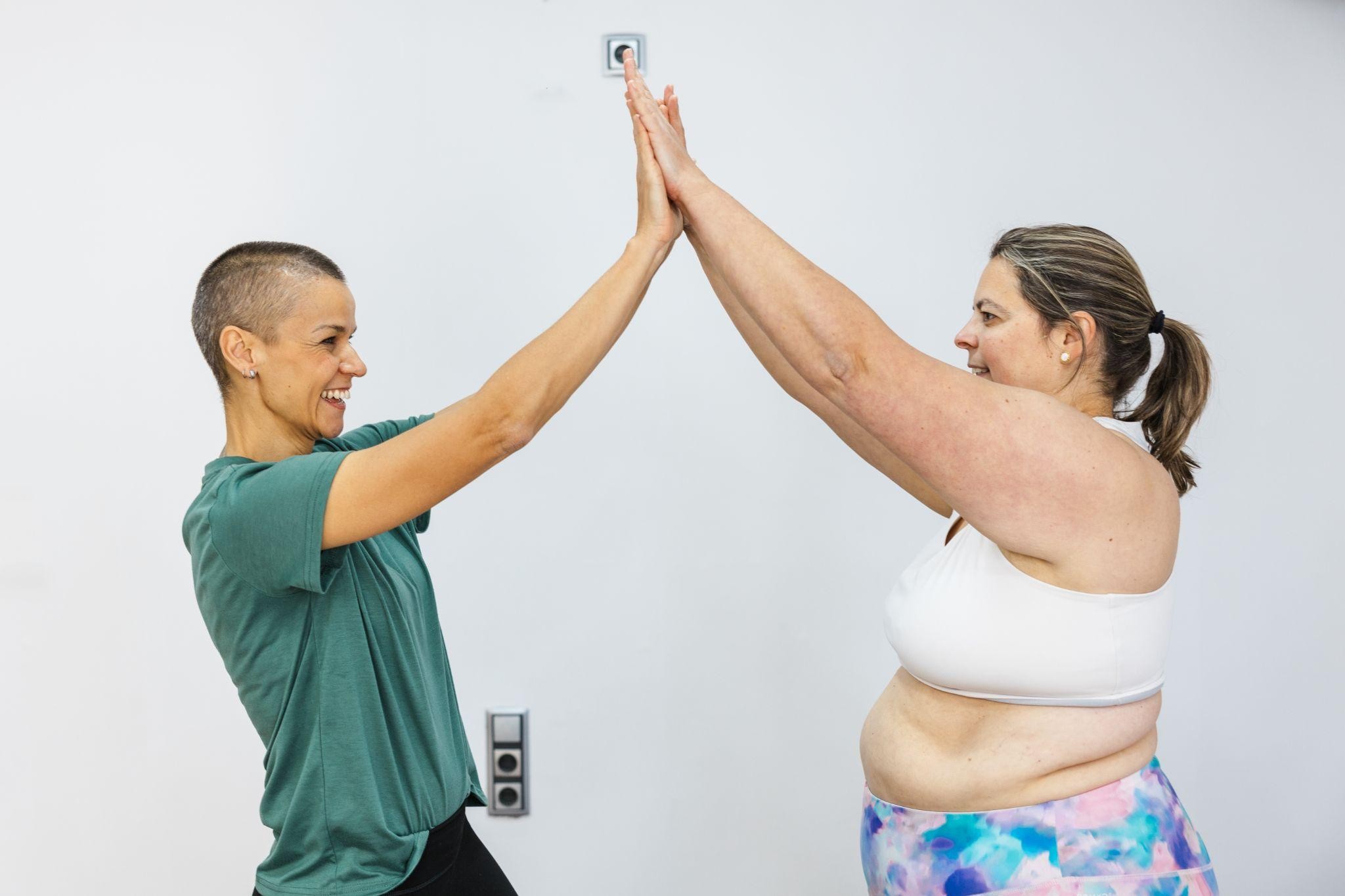If you’re 40 or older, you’ve probably had this moment: you’re eating sensibly, you’re moving more, and the scale shrugs. It’s not stubbornness. It’s your body’s metabolic health shifting with age. The encouraging part? You can help it work for you again.
We’ll walk through why this change happens, what it means for weight loss, and the small, realistic steps that make progress feel doable. Not punishing.
Why Weight Loss Feels Different After 40
Most people describe midlife as a quiet gear change. You’re the same you, but your body idles a little lower.
Muscle naturally drops with age, which means you burn fewer calories around the clock. Hormones also evolve, changing where your body prefers to store fat and how it uses energy.
And yes, your baseline calorie burn can slow, so the old “eat less, move more” move doesn’t hit as hard as it used to.
None of this is a failure on your part. It’s biology. The fix isn’t doing everything “harder.” It’s doing the right things for a midlife metabolism.
Understanding Metabolic Health and Its Role in Weight Loss
Metabolic health is simply how well your body turns food into energy, balances blood sugar and fats, and keeps hormones and inflammation in check. When it’s in a good place, weight responds more easily, energy feels steady, and recovery doesn’t take forever.
When it’s off, you may see plateaus, belly weight that won’t budge, afternoon crashes, or foggy focus. Only a small share of U.S. adults meet the strict bar for optimal metabolic health, which helps explain why so many people feel “stuck” despite trying.
Knowing this gives you a more honest target: support your metabolism first, and the scale is more likely to follow.
How poor metabolic health shows up:
- Lower “idle.” With less muscle, your resting burn drops, so old calorie targets overshoot.
- Hormonal/inflammatory noise. Your body gets better at storing than releasing fat under stress and poor sleep.
- Slower rebound. Workouts and diet swings take more out of you, making consistency tougher.
That’s what a metabolic weight loss approach does. Fueling well, rebuilding muscle, and calming the stress/sleep loop often works better than another short, strict diet.
How River Valley Weight Loss Helps You Reset Your Metabolism
If you’re in midlife, you don’t need a boot camp. You need a plan that respects your calendar, your joints, and your biology. Here’s the shape of the journey with us—steady, personal, and realistic:
- Personal look under the hood. We learn how your metabolism is running now—habits, sleep, stress, and patterns that matter at 40–65.
- Real food, no white-knuckling. You’ll eat satisfying meals that support blood sugar and satiety without counting every bite.
- Strength that fits your life. Short, repeatable strength sessions help rebuild calorie-burning muscle and protect joints.
- Sleep and stress support. We nudge the two levers that quietly control cravings, recovery, and fat loss signals.
- Local or virtual, your choice. Prefer in-person coaching at our Eau Claire weight loss center, or want to check in from home? Both work and both keep you accountable.
This isn’t about “pushing harder.” It’s about aligning the plan with a midlife body so momentum feels possible week after week.
Real Results from Real People
Most clients feel changes before they see all of them: steadier energy, fewer 3 p.m. crashes, and better sleep. Clothes fit differently. Daily movement gets easier. That foundation matters because it keeps progress going without the pendulum swing of “on a diet/off a diet.”
As metabolism and lifestyle improve, long-term risks tied to weight and blood sugar tend to fall, which is reason enough to protect your metabolism even beyond the number on the scale.

Taking the First Step Toward Better Metabolic Health
If you’ve felt stuck, you’re not broken. You’re in a new season. Give your body the inputs it recognizes now: protein-forward meals, simple strength, better sleep, and less noise. That’s the lever that makes change stick in midlife.
Curious how to apply this to you? Book a free consultation (virtual or in person). If you’re nearby, our Eau Claire weight loss center team can meet you in the clinic; if not, we’ll meet you online. Either way, you’ll leave with a clear next step.
Frequently Asked Questions
1) Is my metabolism “set,” or can it really change after 40?
It can change. Genetics play a role, but lifestyle still moves the needle—especially rebuilding muscle, improving sleep, and managing stress. Even small shifts can improve how your body uses energy.
2) I’m busy. What’s the minimum effective dose to help my metabolism?
Two to three short strength sessions per week, protein at each meal, and a set bedtime. Think “repeatable,” not perfect. Consistency beats intensity for midlife bodies.
3) Do I need intense cardio to lose belly fat now?
Not necessarily. For many people, piling on high-intensity work raises stress hormones and backfires. Gentle strength + daily steps is often a better first move; you can layer intensity later once you’re recovering well.
4) How long before I notice anything?
Many feel steadier energy and appetite within a few weeks. Visible changes often follow in 1–3 months, depending on your start point and how consistently you apply the basics.
5) What if I’ve tried everything and nothing sticks?
You likely tried hard, not wrong. The gap is usually fit: a plan built for a 25-year-old body won’t serve a 55-year-old schedule and biology. Personalizing the approach is what turns effort into traction.


